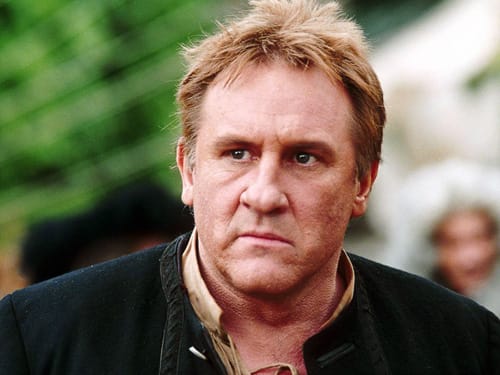The French actor Gerard Depardieu took part a few years ago in a series of readings of Saint Augustine’s works at the Cathedral of Paris. For 50 minutes he read texts from the Confessions selected by the scholar André Mandouze.
Q.- Could you tell us about how these readings came about?
A.- It all began in Rome, during the Jubilee Year 2000. I wanted to make a pilgrimage because I had always greatly admired Pope John Paul II. They placed me among the cardinals and introduced me to the Holy Father. He looked at me and exclaimed, addressing the cardinals around him: "Augustine! You must speak to him about Augustine!" Cardinal Poupard wanted me to produce a film about Augustine, but I objected that I did not know anything about Augustine's writings.
He recommended that I begin with the Confessions. Reading the Confessions was not easy for me at first, but Augustine's words captivated me. His reflection seemed sublime, and he made me take a look at myself, at my personal journey. From the time I was 15 years old until I was 17, I was unable to express myself, incapable of speaking, because of a pathological hyperemotional condition. It was only through the words of others, of writers, that I was able to calm down.
Psychoanalysts
When I read Saint Augustine, I rejected the idea of producing a movie, because visual images set limits to our perception, while the words of Augustine and what they let us understand offer us a view of his deep inner dimension. I have latched onto this book, to the point that it continues to attract me forcefully in spite of everything else that I read every day. In effect I have been consulting a psychoanalyst for twenty years, because Books X and XI of the Confessions (a deep well of references for psychoanalysts!) offer replies to our deepest personal questions and ease our most painful questioning.
Q.- You have listened to the voice of Saint Augustine. What does is sound like?
A.- I heard it immediately! It sounds like the poetry of a man who does not know
how to say what is happening to him. His searching totally fills me because it puts me in touch with my own fragility and with what I have lived in the crucial moments of my life.
I instinctively perceived radiating light and truth in Saint Augustine's words, at the same time that they aroused in me a desire to find ways to share them with others at some time. I imagined a place where people congregate: a church, a temple, a mosque, a synagogue. There were four candles there that would burn out in 45 minutes – Moliére calculated the length of his comedies according to how long candles burn – and I took my place, with no stage or formal setting, simply proclaiming a reading at the door of the church.
Algeria
In 2001, during the full recrudescence of Muslim fundamentalism, I found myself in Algeria with President Bouteflika, and we talked only about Saint Augustine. I told him that I needed a guide, and he recommended that I speak with André Mandouze, who just happened to be in Algeria in those days.
I was deeply impressed but lost in the books of Saint Augustine. A few days after meeting André, he offered me what I was looking for: the story of Augustine's life, his early years, his converion, his ecstasy. Augustine impressed me with the way he spoke to God in familiar terms, how he confronted him personally, face to face. I wanted to begin with that same familiarity and to end with ecstasy. André arrived at just the right moment to show me the way.
Q.- Did Mandouze's profound reflections, personal journey, and closeness to you help you to grow?
A.- Of course! I dropped out of school at age 13 and abandoned catechetical instruction before first communion, because Father Lefévre, who was my spiritual director, found me too turbulent.
I had a great passion for life, and woven through every fiber of my body was a desire to know everything, to understand everything. At that time, during the fifties, children of the poor did not mix with children of the rich. My father, a simple laborer though he later came to be a host of the Tour de France, was illiterate, and my mother had many children.
Non-practicing Catholic
I was a weed growing wild, always impelled by a desire to do good. I was a Catholic, though not practicing, and a sense of mystery was always present in me. Without knowing anything and without even being aware of it, I had faith. After all, faith is precisely the desire to live, to live and to grasp everything. But my parents set limits on my desires, desires that I had to take the responsibility for fulfilling. I had to find my own guides.
And I found two: Jean Giono and his The Song of the World. And, at the end of my adolescence, when I left Chateauroux, I carried in my pocket the Stories of a Russian Pilgrim. Like him I always held deep within myself the supplication, "Lord Jesus, have mercy on me!" I constantly breathed it, and it took away all my fears. I was full of spiriatuality without even knowing it.




